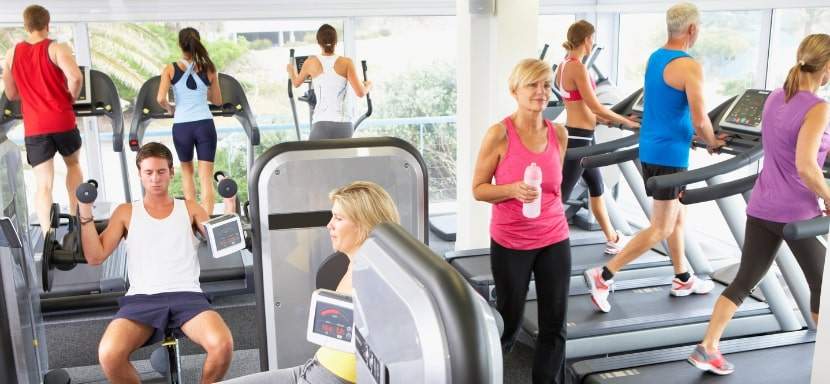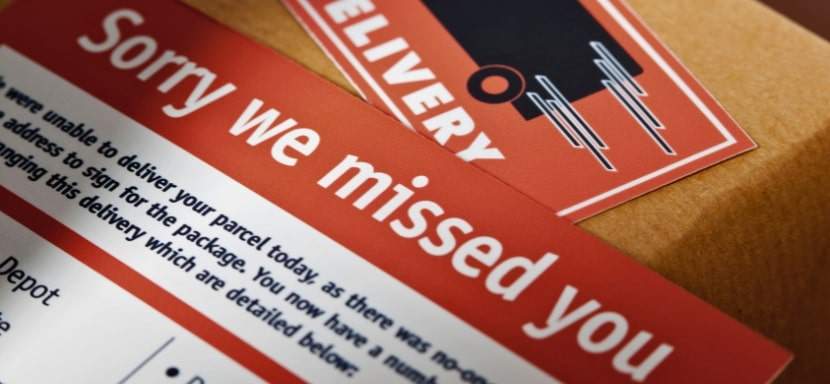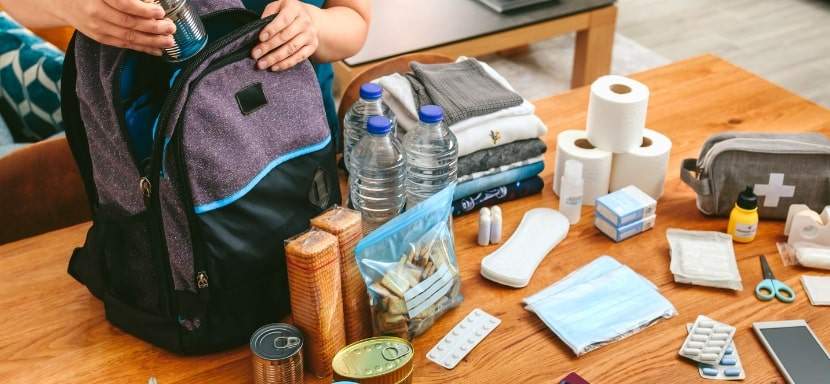How to Survive Without Your Smartphone

How to Manage Daily Life Without a Phone
Imagine a life where you’re fully present and engaged—learn how to thrive without your phone.
In an era of smartphones, imagining life without one can seem daunting.
However, learning how to survive without your phone is not just about coping with the absence of a device; it’s about rediscovering a more mindful, connected, and fulfilling way of living.
This guide provides practical tips, insights, and strategies for embracing a phone-free life and enhancing your well-being and relationships.
Key Points
- Enhance Personal Relationships: Being fully present and engaged without phone distractions strengthens connections with loved ones.
- Improve Mental Health and Productivity: Establishing mindful, phone-free routines boosts mental clarity and efficiency.
- Discover Fulfilling Offline Activities: Engaging in hobbies and offline activities enriches your life and provides a sense of accomplishment.
The Importance of Digital Detox
In our hyper-connected world, the concept of a digital detox has gained significant traction. A digital detox involves taking a break from digital devices to focus on real-life interactions and activities. The benefits include reduced stress, improved mental clarity, and a greater sense of presence. Understanding the importance of disconnecting can motivate you to start your journey toward surviving without your phone.
10 Tips for Surviving Without Your Smartphone
- Create a Routine: Establish a daily schedule to structure your time without relying on phone reminders.
- Use Physical Calendars and Planners: Keep track of appointments and tasks with a tangible calendar or planner.
- Engage in Offline Hobbies: Invest time in activities like reading, cooking, or gardening to fill the gap left by your phone.
- Stay Connected: Maintain social connections through face-to-face interactions, phone calls on landlines, or handwritten letters.
- Utilize Public Resources: Use libraries, public transportation schedules, and physical maps for information and navigation.
- Develop New Skills: Learn to read maps, use public phones, and manage daily tasks without digital assistance.
- Mindfulness Practices: Incorporate mindfulness and meditation into your routine to stay focused and reduce anxiety.
- Emergency Preparedness: Keep a list of essential contacts and emergency information in a readily accessible place.
- Stay Informed: Subscribe to newspapers or magazines and listen to the radio for news and updates.
- Set Boundaries: Establish clear boundaries for phone use, such as phone-free zones and times to minimize dependency.
Practical Tips to Adapting to Life Without Your Cell Phone
Transitioning to life without a cell phone can be challenging but highly rewarding. This section provides practical tips to help you adapt seamlessly, including creating structured routines, exploring offline hobbies, and staying connected through alternative methods. By implementing these strategies, you can enjoy a more balanced and fulfilling lifestyle while minimizing your reliance on digital devices.
Understanding Phone Dependency
Phone dependency is more common than ever, often characterized by a compulsive need to check messages, social media, and notifications. Recognizing this dependency is the first step toward overcoming it. The constant connectivity can lead to anxiety, reduced attention spans, and a lack of real-world engagement. Addressing these issues can pave the way for a healthier relationship with technology.
Assessing Your Phone Usage
Before you can effectively reduce your phone use, assessing how and why you use it is essential. Track your screen time, identify the apps that consume most of your attention, and understand your usage patterns. This awareness can help you set realistic goals and plan to minimize phone dependency.
Planning Your Phone-Free Time
Creating a structured plan for your phone-free time is crucial. Start by designating specific hours or days you will not use your phone. Gradually increase these periods as you become more comfortable. Planning activities and setting clear boundaries can help you stick to your goals and make the transition smoother.
Finding Alternatives for Common Phone Functions
Phones serve many purposes, from communication and entertainment to navigation and information. Identifying and adopting alternatives for these functions can ease your transition. For instance, using a physical map instead of GPS, reading physical books instead of e-books, and engaging in face-to-face conversations can help you rely less on your phone.
Enhancing Personal Relationships Without a Phone
Enhancing personal relationships is one of the most significant benefits of reducing phone use. Being present, engaging in conversations, making eye contact, and actively listening can deepen connections with loved ones. Without the distraction of a phone, you can foster more meaningful and fulfilling relationships.
Improving Productivity Without Distractions
Phones can be a significant source of distraction, affecting productivity. Limiting phone use lets you focus better on tasks and manage your time more effectively. Techniques such as the Pomodoro method, setting specific work hours, and creating a distraction-free workspace can boost your productivity.
Engaging in Offline Activities
Engaging in offline activities can be incredibly rewarding and fulfilling. Hobbies such as painting, gardening, cooking, and playing musical instruments can provide a sense of accomplishment and joy. These activities can also serve as a great way to relax and unwind without the need for digital devices.
Mental Health Benefits of Reducing Phone Use
Reducing phone use can have a profound impact on mental health. It can reduce anxiety, improve sleep quality, and enhance overall well-being. By being less tethered to your phone, you can experience a greater sense of calm and mental clarity, leading to a more balanced and happy life.
How to Navigate Without GPS
Navigating without GPS may seem challenging, but it’s entirely possible. Learn to read physical maps, ask for directions, and familiarize yourself with landmarks. These skills can help you get around without your phone and improve your sense of direction and spatial awareness.
Did You Know?
Excessive smartphone use has been linked to increased anxiety and depression, highlighting the importance of setting boundaries for healthier mental well-being.
Staying Informed Without a Smartphone
Staying informed without a smartphone requires a bit more effort but is achievable. Subscribe to physical newspapers or magazines, listen to the radio, or watch news on television. These traditional methods can keep you updated without constant digital notifications.
Managing Social Connections Without Social Media
Managing social connections without social media can initially seem complicated. However, focusing on in-person interactions, phone calls, and even letter writing can maintain and strengthen your relationships. Organizing regular meet-ups and being proactive in communication can help you stay connected without relying on social media.
Handling Emergencies Without a Phone
Handling emergencies without a phone necessitates being prepared. Ensure you have a list of essential contact numbers, know the locations of nearby public phones, and keep a basic emergency kit. Establishing a plan with family and friends for reaching each other in an emergency is also crucial.
Practical Tips for Weaning Off Your Phone
Weaning off your phone can be done gradually. Start by turning off non-essential notifications, keeping your phone out of reach during specific times, and setting boundaries for phone use. Over time, these small changes can lead to a significant reduction in your phone dependency.
Creating a Phone-Free Morning Routine
Starting your day without your phone can set a positive tone. Establish a morning routine that includes stretching, meditating, reading, or enjoying a quiet breakfast. You can start your day with clarity and intention by keeping your morning phone-free.
Building a Phone-Free Evening Routine
Ending your day without your phone can improve sleep quality and relaxation. Create an evening routine involving winding down activities like reading a book, bathing, or practicing gratitude. By setting aside your phone in the evening, you can ensure a more restful and peaceful night.
Mindfulness and Meditation Practices
Incorporating mindfulness and meditation into your daily routine can help reduce phone dependency. Deep breathing, body scans, and guided meditations can enhance focus and presence. These practices can also help you manage stress and cultivate inner peace.
Exploring Nature and Outdoor Activities
Spending time in nature and engaging in outdoor activities can be incredibly refreshing and rejuvenating. Activities such as hiking, camping, bird-watching, and simply walking in the park can help you disconnect from your phone and reconnect with the natural world.
Developing New Hobbies and Interests
Developing new hobbies and interests can provide a productive and enjoyable alternative to phone use. Whether learning a new language, picking up a musical instrument, or exploring creative arts, new hobbies can enrich your life and reduce the need for digital distractions.
Reading More Books and Articles
Reading books and articles can be a great way to engage your mind and expand your knowledge. Physical books, in particular, offer a tactile experience that can be more satisfying than reading on a screen. Setting aside time for regular reading can also improve concentration and cognitive skills.
Journaling and Self-Reflection
Journaling and self-reflection can be powerful tools for personal growth and mindfulness. Writing down your thoughts, experiences, and goals can help you process emotions and gain insights into your life. This practice can also provide a phone-free way to unwind and reflect at the end of the day.
Digital Detox Retreats and Vacations
Digital detox retreats and vacations are designed to help you unplug and recharge. These retreats often take place in serene, natural settings and offer activities that promote relaxation and mindfulness. Participating in a digital detox retreat can be a transformative experience, helping you break free from phone dependency.
Long-Term Strategies for Minimal Phone Use
Adopting long-term strategies for minimal phone use can help you maintain a healthier relationship with technology. Set clear boundaries for phone use, regularly evaluate your usage patterns, and stay committed to your goals. By integrating these strategies into your lifestyle, you can enjoy the benefits of reduced phone dependency over the long term.
FAQs About Living Without a Smartphone
How can I stay connected with friends without social media?
What are some offline activities I can engage in?
How can I handle emergencies without a phone?
Ensure you have a list of essential contact numbers, know the locations of nearby public phones, and keep a basic emergency kit. Establish a plan with family and friends for how to reach each other in case of an emergency.
What are the benefits of reducing phone use for mental health?
Reducing phone use can decrease anxiety, improve sleep quality, enhance mental clarity, and contribute to overall well-being, leading to a more balanced and happy life.
How can I navigate without GPS?
Learn to read physical maps, ask for directions, and familiarize yourself with landmarks. These skills can improve your sense of direction and spatial awareness.
What are some practical tips for weaning off my phone?
Start by turning off non-essential notifications, keeping your phone out of reach during specific times, and setting boundaries for phone use. Gradually increase phone-free periods to reduce dependency.
Conclusion: Living Without a Smartphone
Surviving without your phone is not just about living without a device; it’s about rediscovering a more mindful, connected, and fulfilling way of life.
By understanding phone dependency, planning your phone-free time, and embracing offline activities, you can enjoy a more prosperous, more balanced life.
The journey toward a phone-free existence may be challenging, but the rewards are worthwhile.
Uncommon Facts About Smartphones
Smartphones have become an integral part of modern life, but many people might not be aware of these devices’ surprising and lesser-known aspects. Below is a list of 20 uncommon facts about smartphones that shed light on their technology, impact, and interesting quirks.
- First Smartphone: IBM’s Simon Personal Communicator, introduced in 1994, was the first smartphone with a touch screen and email capability.
- Average Unlocks: On average, smartphone users unlock their phones around 150 times daily.
- Gold in Phones: Each smartphone contains trace amounts of precious metals like gold, which can be recycled.
- Phone Anxiety: Nomophobia, the fear of being without your phone, affects nearly 66% of the population.
- Battery Life Myths: Closing apps doesn’t necessarily save battery life and can sometimes increase consumption.
- Accelerometer Uses: The accelerometer in smartphones not only detects orientation but also helps in gaming and fitness tracking.
- Smartphone Bacteria: Due to frequent handling, smartphones can carry more bacteria than a toilet seat.
- Lithium-Ion Batteries: Smartphone batteries are made from lithium-ion, which can catch fire if damaged or improperly handled.
- E-Waste Problem: Smartphones contribute significantly to e-waste, with millions of units discarded yearly.
- Microphone Sensitivity: Your smartphone’s microphone is highly sensitive and can pick up sounds even when you’re not using it actively.
- Virtual Assistants: Features like Siri, Google Assistant, and Alexa constantly evolve and learn from user interactions.
- App Permissions: Many apps request access to more data than they need, raising privacy concerns.
- Built-in Magnets: Smartphones have built-in magnets for features like wireless charging and digital compass functionality.
- Heat Sensors: Some smartphones have heat sensors that detect overheating and shut down the device to prevent damage.
- Durability Tests: Smartphones undergo rigorous durability tests, including drops and bends, before hitting the market.
- Screen Resolutions: Modern smartphones have screen resolutions higher than most high-definition TVs.
- Haptic Feedback: Small motors called haptic actuators control the vibrations you feel when typing or receiving notifications.
- Water Resistance: Many smartphones are now water-resistant, meaning they can withstand accidental drops in water.
- Dark Mode Benefits: Using dark mode on smartphones can save battery life and reduce eye strain.
- Global Penetration: Over 3.8 billion smartphone users worldwide use smartphones, making them one of the most rapidly adopted technologies in history.
These facts highlight smartphones’ complexity, capabilities, and intriguing aspects, demonstrating that there’s much more to them than meets the eye.
More Real Life Scenarios
How to Survive a Layoff
Layoffs feel personal—even when they’re not. One day, you’re responding to Slack messages and forwarding…
How to Survive a Drug Test
I never imagined I’d be so emotionally invested in a paper cup. But there I was, standing under the fluorescent…
How to Survive an Interrogation
If you’ve ever been caught in the crosshairs of an overly enthusiastic mall cop or stared down by someone…
How to Survive a Bachelor Party
A bachelor party is a delicate mix of celebration, chaos, and questionable decision-making, wrapped…
How to Survive Your First Time at the Gym
Walking into a gym for the first time can feel like stepping into an alien world. The machines hum with…
Recent Survival Posts
How to Survive a Layoff
Layoffs feel personal—even when they’re not. One day, you’re responding to Slack messages and forwarding…
How to Survive a Drug Test
I never imagined I’d be so emotionally invested in a paper cup. But there I was, standing under the fluorescent…
How to Survive an Interrogation
If you’ve ever been caught in the crosshairs of an overly enthusiastic mall cop or stared down by someone…
How to Survive a Nightclub Shooting
Nightclubs pulse with life—lights flashing, music pounding, bodies packed tight on the dance floor. It’s a place to…
How to Survive a Bachelor Party
A bachelor party is a delicate mix of celebration, chaos, and questionable decision-making, wrapped…
More Real-Life Survival Scenarios

How to Survive a Drug Test
The Cup, The Room, The Truth I never imagined I’d be so emotionally invested in a paper cup. But there I was, standing under the fluorescent hum of a strip-mall clinic, trying to recall the last time I ate a poppy seed bagel. That’s the thing about drug tests—they...

How to Survive an Interrogation
If you've ever been caught in the crosshairs of an overly enthusiastic mall cop or stared down by someone in a uniform with a clipboard and a glare, you’ve felt it — the chilly fingers of interrogation anxiety. And while most of us imagine interrogation scenes as...

How to Survive a Bachelor Party
A bachelor party is a delicate mix of celebration, chaos, and questionable decision-making, wrapped in the noble intention of sending the groom off into married life with a night he’ll (hopefully) remember. It’s a ritual as old as time—well, as old as men deciding...

How to Survive Your First Time at the Gym
Walking into a gym for the first time can feel like stepping into an alien world. The machines hum with purpose, the regulars move confidently, and you’re left standing there, clutching your water bottle, wondering whether you’re in the right place—or on the right...

How to Survive a Missed Package Delivery
Life throws curveballs. One moment, you’re eagerly waiting for your package like a kid on Christmas morning, and the next, there’s a smug little note stuck to your door. A missed package delivery. It feels like a breakup letter from the universe. But don’t worry—I’ve...
More Survival Scenarios

How to Survive a Layoff
When the Floor Falls Out: The Reality of a Layoff Layoffs feel personal—even when they're not. One day, you're responding to Slack messages and forwarding emails. Next, you're staring at your monitor as it logs you out... for good. Whether it's a restructuring, a...

How to Survive a Drug Test
The Cup, The Room, The Truth I never imagined I’d be so emotionally invested in a paper cup. But there I was, standing under the fluorescent hum of a strip-mall clinic, trying to recall the last time I ate a poppy seed bagel. That’s the thing about drug tests—they...

How to Survive an Interrogation
If you've ever been caught in the crosshairs of an overly enthusiastic mall cop or stared down by someone in a uniform with a clipboard and a glare, you’ve felt it — the chilly fingers of interrogation anxiety. And while most of us imagine interrogation scenes as...

How to Survive a Nightclub Shooting
Nightclubs pulse with life—lights flashing, music pounding, bodies packed tight on the dance floor. It’s a place to escape, feel the rhythm, and lose yourself in the crowd. But that same energy can turn deadly in seconds, transforming a night of fun into one of the...

How to Survive a Bachelor Party
A bachelor party is a delicate mix of celebration, chaos, and questionable decision-making, wrapped in the noble intention of sending the groom off into married life with a night he’ll (hopefully) remember. It’s a ritual as old as time—well, as old as men deciding...

How to Survive Your First Time at the Gym
Walking into a gym for the first time can feel like stepping into an alien world. The machines hum with purpose, the regulars move confidently, and you’re left standing there, clutching your water bottle, wondering whether you’re in the right place—or on the right...

How to Survive a Worldwide Communications Breakdown
Imagine waking up to silence. Your phone doesn’t buzz, your email won’t load, and even your local radio station crackles with static. A worldwide communications breakdown has hit. What next? For many, this doomsday scenario may sound like the opening lines of a...

How to Survive a Flash Flood While Driving
Surviving a flash flood while driving requires quick thinking, calmness, and a solid plan to ensure your safety. Preparation can make all the difference between a close call and a catastrophe in emergencies like this. This guide provides practical advice to protect...

How to Build an Emergency Kit
Emergencies don’t knock politely at the door. They barge in, uninvited, like a distant relative with a penchant for drama, turning your world upside down without warning. Whether it’s a power outage, a natural disaster, or an unexpected evacuation, the key to staying...

How to Protect Yourself From Insects in the Wild
There’s nothing like being out in the wild—birdsong echoing through the trees, the fresh scent of earth, and a deep sense of peace that makes you think, “Ah, this is what life is about.” But then comes the buzzing. Mosquitoes, ticks, and flies swoop in like uninvited...
